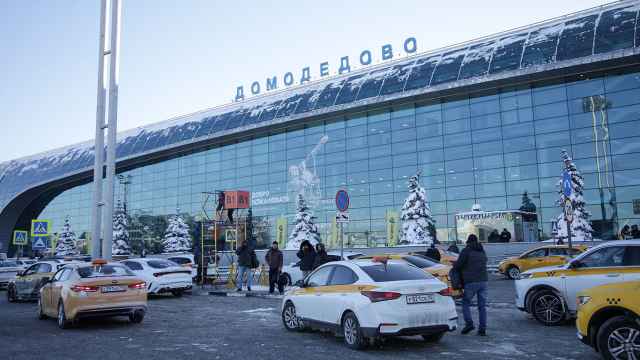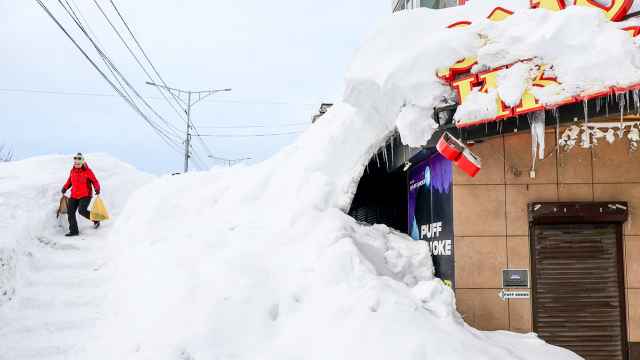Twenty years ago, there were no political scientists in this country, and political science as a discipline did not yet exist. Now, almost every television pundit calls himself or herself a political scientist. All it takes is repeating a rumor about the former Mayor Yury Luzhkov to be called a “political scientist.” But some so-called political scientists do not limit themselves to gossip. They expound upon any topic under the sun, from the latest U.S.-Russian nuclear disarmament treaty to the state of agriculture in China’s Sichuan province. Yet the majority of these “experts” in various fields do not even hold a degree in political science and have only a vague understanding of what political science actually is.
These pseudo-political scientists resemble faith healers who never bothered to get a medical education but try to treat every imaginable disease — from the whooping cough to cancer. As a result, their patients are maimed or die prematurely from these illnesses. The damage caused by self-styled political scientists might not be as obvious, but it is substantial just the same.
In the late 1940s, Marxist philosophers and economists — the forerunners of today’s political scientists — argued that capitalism in Western Europe was degenerating so rapidly that it was on the verge of imminent collapse and that communists would soon come to power there. Based on that prediction, Stalin conducted a very aggressive foreign policy that prompted the creation of NATO and its military bases encircling the Soviet Union. Stalin’s provocations also forced Turkey, Iran and other countries to adopt a firm anti-Soviet stance. Ultimately, those inaccurate predictions led the country’s leaders to make major, if not fatal miscalculations.
Today we hear similar predictions from Russia’s political faith healers that might sound like naive jokes, but if our leaders base their policy on them, it could cause serious damage to Russia’s national security. For example, one popular prediction in the past few years has been that the United States will split into six parts and that China will occupy the Russian Far East and Siberia.
Political science is a very serious discipline that requires a particular knowledge base, specialization and constant attention to the object of study. Thus, when I invited a visiting U.S professor to speak to a group of Moscow students about U.S. foreign policy, he flatly refused, explaining that he specializes in Washington’s relationship with the former Soviet Union, and that U.S. foreign policy outside of the former Soviet Union does not fall within his sphere of competency.
Books and dissertations written abroad undergo extensive preparatory work. But take a typical doctoral dissertation on South Korea or France written by a Russian university student, and the bibliography will usually fail to list half of the publications freely available on the topic. The academic advisor must remind his student: “You claim that you have achieved new results, but how do you know they’re new if you haven’t read dozens of books and dissertations that address the same subject? Maybe these results have already appeared elsewhere.” Recall Ostap Bender, the fictional con man from the Ilf and Petrov classic “The Golden Calf.” Bender, in his sleep, thought he was the author of the phrase “I remember a wonderful moment,” only to awaken and remember that it was Alexander Pushkin who had penned this well-known line.
The doctoral student usually has nothing to say in response to this rebuke, but at the same time, he typically feels no remorse either. That is because in Russia, it is standard practice to ignore work done by colleagues working in the same field. But in the West, and also in such Asian countries as China, Japan, South Korea and others, anyone writing a book or dissertation first makes a thorough study of everything else already published on the same subject. I recently saw a monograph on Iran by a U.S. author. It contained more than 40 references to books and articles written by Russian scholars and hundreds more to research published by Europeans. Russian scholars are just as copiously quoted by foreign authors researching many other topics, too.
I was particularly impressed with one young researcher from Stanford University. His dissertation topic was “The Policy of the Soviet Union and China toward Vietnam in the 1960s and 1970s.” To complete his dissertation, the doctoral candidate learned Russian, Chinese and Vietnamese. He then spent two months in Russia digging through the Moscow archives, copying thousands of documents. He also managed to interview everyone he could find who knew at least something about relations within the Soviet Union-China-Vietnam triangle of that period.
I was one of those he interviewed and, frankly, he really wore me out with his meticulous questions. He wanted to know the most obscure details of long-forgotten events. For example, he asked me which Vietnamese leaders met with Alexei Kosygin, Soviet chairman of the Council of Ministers, when he came to Hanoi in 1969 for the funeral of North Vietnamese leader Ho Chi Minh. The U.S. student impressed me with his fluent Russian and his almost equal command of Chinese and Vietnamese. His research took him to China and Vietnam, and finished with a second visit to Russia. Two years later, his monograph was published with a small print run and with no honorarium.
This example is more or less standard modus operandi for scholarly works. In 2005, Stanford University professor Roger Kornberg published a book unattractively titled “The Molecular Basis of Eukaryotic Transcription.” It sold about 200 copies over the next five years. Alexandra Marinina, a popular Russian author of detective novels, probably sold about 2 million copies of her books during the same period. But in 2006, Kornberg received the Nobel Prize in Chemistry for his unassuming little book.
In general, science — including political science — is not just a lot of chatter on television. One Russian commentator likes to say that if an event was not shown on television, then it didn’t happen at all. That naturally suggests that books have no meaning either. For political quacks and faith healers, that probably is true.
Russia could only improve by getting rid of its faith healers — both political and medical.
Yevgeny Bazhanov is vice chancellor of research and international relations at the Foreign Ministry’s Diplomatic Academy in Moscow.
A Message from The Moscow Times:
Dear readers,
We are facing unprecedented challenges. Russia's Prosecutor General's Office has designated The Moscow Times as an "undesirable" organization, criminalizing our work and putting our staff at risk of prosecution. This follows our earlier unjust labeling as a "foreign agent."
These actions are direct attempts to silence independent journalism in Russia. The authorities claim our work "discredits the decisions of the Russian leadership." We see things differently: we strive to provide accurate, unbiased reporting on Russia.
We, the journalists of The Moscow Times, refuse to be silenced. But to continue our work, we need your help.
Your support, no matter how small, makes a world of difference. If you can, please support us monthly starting from just $2. It's quick to set up, and every contribution makes a significant impact.
By supporting The Moscow Times, you're defending open, independent journalism in the face of repression. Thank you for standing with us.
Remind me later.





